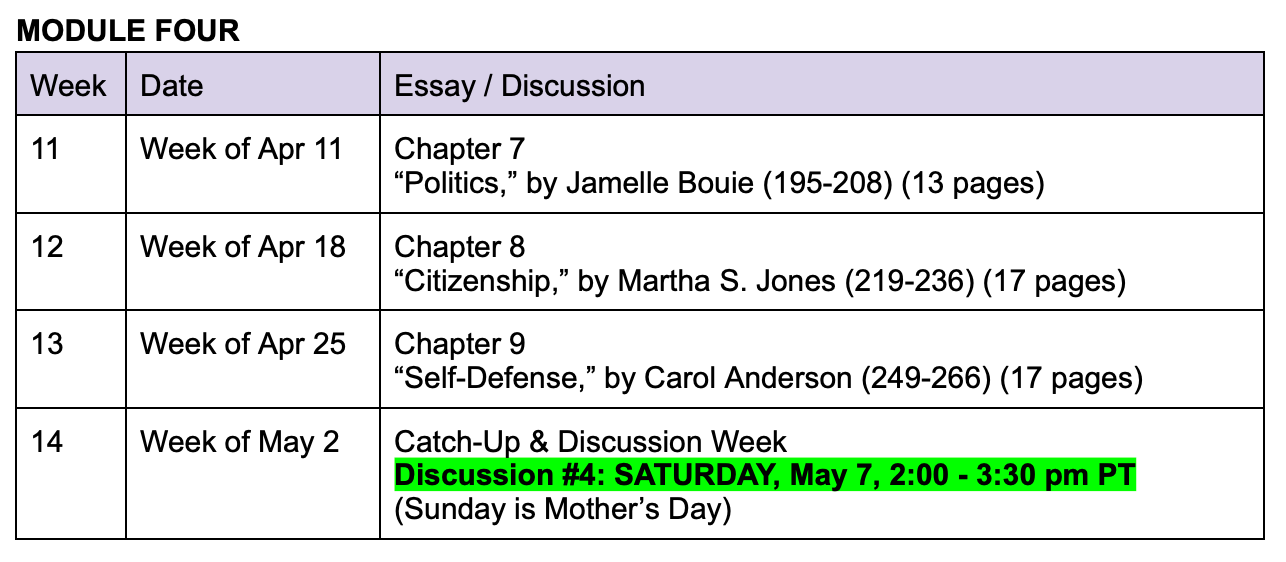1619: “Politics,” by Jamelle Bouie
Also: Thank you for a very thoughtful discussion yesterday!
Hi Book Clubbers! Thank you for our thoughtful discussion yesterday. Our conversations are deepening, don’t you think? I’m very grateful for how everyone is reading the book closely and showing up authentically. Special appreciation goes to facilitators Wes, Maureen, Summer, and Telannia. If you couldn’t make it yesterday, we missed you and look forward to having you back on Saturday, May 7.
If you haven’t done so already, please fill out the 1619 Halfway Survey in the next few days. It’ll take 3-8 minutes. The goal is to find out if you want to stay in your small group or switch to a new small group. I’ll update you in the weeks ahead.
Now it’s time to dive into Module 4. Here’s our schedule.
This week, let’s read “Politics,” by Jamelle Bouie. The essay expands on themes in “Fear” by arguing that our country says it’s for democracy — unless majority rule threatens white supremacy. Mr. Bouie juxtaposes current-day politics (e.g., Trumpism, voter suppression, gerrymandering, January 6 ) with the philosophy of nullification (as advocated by Senator and enslaver John Calhoun) before the Civil War and the concept of states’ rights after Brown v. Board.
This week
Read “Politics,” by Jamelle Bouie.
Recommended: Respond to one of the following questions and share your contribution in the comments.
One thing we learn in civics is that our government is set up to respect the majority but protect minority rights. After reading this chapter, what are your thoughts about this American tenet?
John C. Calhoun: Discuss.
Quoting Samuel Francis, Mr. Bouie writes, “[Reagan conservatism] had to do with the awakening of a people who face political, cultural, and economic dispossession” (204). Later Mr. Bouie writes about “fear” of “replacement” and “social change in America” (205). What’s at the root of this fear, and why does white American fear lead to violent backlash?
In his conclusion, Mr. Bouie concedes that “you could make the case that none of this has anything to do with slavery and enslavers’ ideology.” What would you say to someone who holds those views?
Also, please feel free to reach out. All you need to do is hit reply. Let’s build momentum and make this book club a deep and transformative one. Thank you and have a great week!






